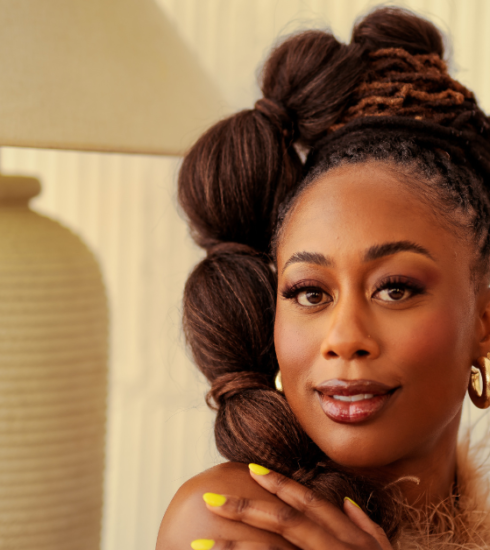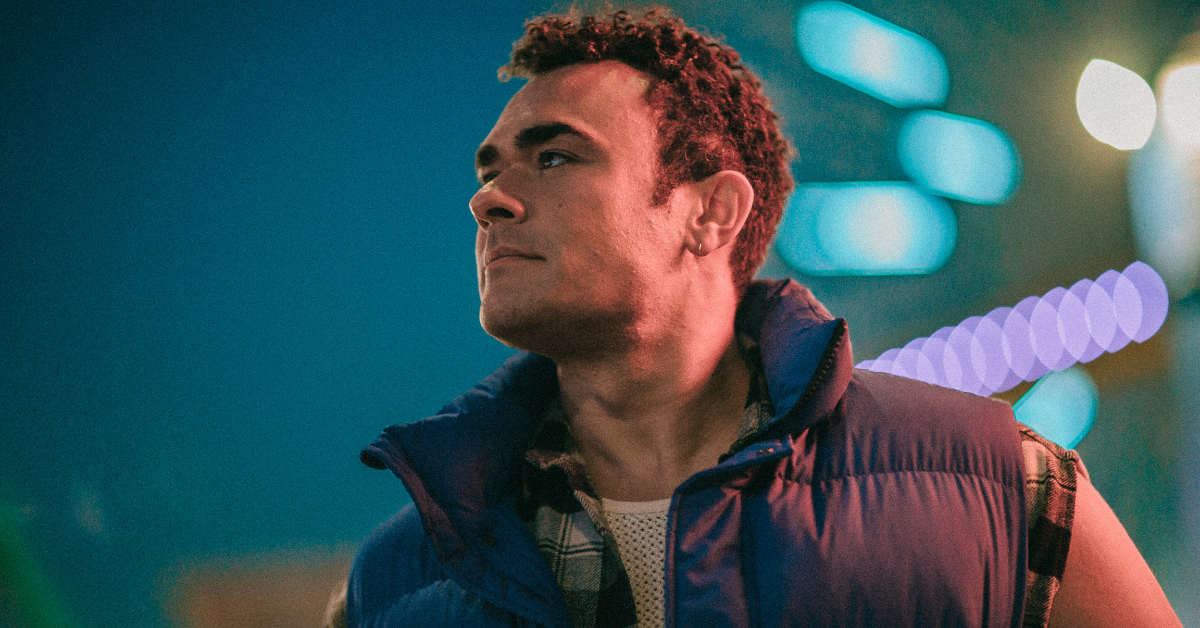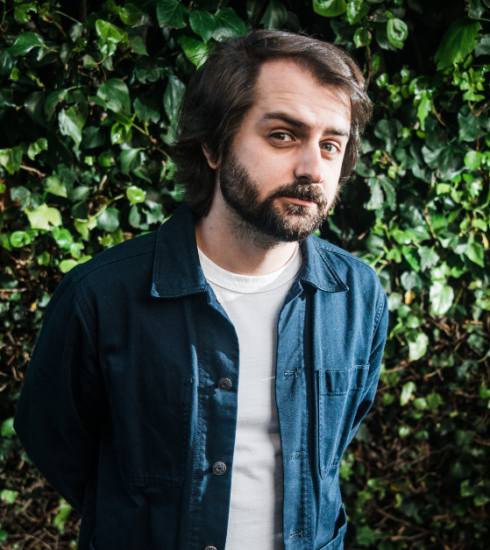Carey Cox Is Redefining Visibility—With Every Role
As The Handmaid’s Tale enters its final season on April 8, Carey Cox returns as Rose Blaine—Nick’s quietly devout, quietly defiant wife. In a society built on perfection and control, Rose is an anomaly: visibly disabled, deeply faithful, and unshakably human. For Carey, who lives with Ehlers-Danlos Syndrome, the role is more than groundbreaking—it’s personal.
“Rose is invited in, but not fully included,” Carey says. “That contradiction is real for a lot of disabled people.” Walking with a cane due to congenital hip dysplasia, Rose’s presence in Gilead challenges every unspoken rule about who gets to belong.
This season, Rose takes up more space—emotionally, politically, even spiritually. “She’s not a symbol. She’s not a side note,” Carey explains. “She’s a woman with agency, romance, and conviction.” Pregnant during filming, Carey credits the cast for holding space for both the intensity of the story and the joy behind the scenes: “You have to laugh until it’s time to cry.”


To build Rose’s inner world, Carey drew from real-life stories like Lilia Tarawa’s memoir of escaping a religious cult, channeling the quiet tension between faith, intelligence, and control. The result? A performance that doesn’t just break barriers—it expands them.
Stepping Into the Spotlight: Where Did The Adults Go?
While The Handmaid’s Tale shows Carey’s power in ensemble, Where Did The Adults Go? puts her front and center. In her first lead role in a feature film, she stars as Cynthia—a queer, disabled woman returning to her family’s summer home a year after her parents’ death. She’s ready to sell the house and move forward with her wife, but her brothers aren’t on the same page.
Directed by Oscar nominee Courtney Marsh, the indie drama explores grief, identity, and the complexity of adult sibling relationships. “It’s intimate, messy, and honest,” Carey says. “Cynthia is fiercely independent, but also deeply in need of connection. That tension between autonomy and care is something a lot of disabled folks understand.”
Despite the emotional weight, the film’s set felt like “a thoughtful summer camp,” Carey laughs. “Everyone brought their full selves. It was fast-paced, low-budget—but full of heart.”
As Where Did The Adults Go? hits the festival circuit, Carey’s performance is already drawing attention for its raw vulnerability and grounded strength.


“Cynthia’s not there to teach anyone a lesson,” Carey says. “She’s flawed, stubborn, and trying to build a life that feels real. That’s the kind of representation I want to see more of.”
Whether in dystopia or indie drama, Carey Cox is leading a quiet revolution—on screen, and on her own terms.
Carey Cox Is Done Waiting for Hollywood to Catch Up
Carey Cox has always believed in the power of storytelling—but she also believes in truth. As an actor who’s worked across theater, television, and film, Cox brings a quiet intensity to every role she touches. And offscreen, she’s a fierce advocate for disability representation, pushing for authenticity not just in casting, but in who gets to shape the stories we see.
“There’s been a lot of progress,” Cox acknowledges. “More disabled performers are working than ever before, and the conversation has definitely evolved. But so many of us who’ve been here for a while still feel like we’re not nearly where we should be.”
Cox, who began identifying as a disabled actor nearly a decade ago, has watched the industry shift from indifference to, at the very least, awareness. When she first entered the space, the idea that disabled roles should be played by disabled actors was often dismissed. “People would say, ‘Well, acting is acting,’ as if representation didn’t matter,” she recalls. “But it does matter. It matters deeply.”
What’s changed, she says, is that disability is now more often viewed as a distinct and marginalized identity—one that deserves space on the screen, not as inspiration or tragedy, but as lived experience. “The imbalance of opportunities is finally being recognized for what it is: a form of workplace discrimination,” she says. “And that’s a shift. That’s progress.”
Cox isn’t just talking about fairness—she’s advocating for the kind of storytelling that reshapes culture. “Authenticity is a form of social justice. Who we see on screen informs how we move through the world, how we view each other, and even how we view ourselves.”
Still, Cox is under no illusion that change is linear. She sees how quickly momentum can stall. “Inclusion moves in cycles,” she explains. “We push forward, and then there’s backlash. Every decade, we see it—the calls for diversity get commodified, turned into branding exercises, and then the reactionary push starts. We’re seeing it now with the dismantling of DEI and the attacks on so-called ‘wokeness.’”


But even in the midst of that backlash, Cox remains grounded. “Our progress isn’t erased by the current backlash. We’ve fought for every inch of ground we’ve gained, and that doesn’t just go away.”
What she wants now is more than just opportunity—she wants trust. “We need more disabled stars,” she says plainly. “We need to greenlight our stories, let us lead the shows and films, let us direct and write and produce. We need to end ‘cripping up’ once and for all. And most of all, we need people to stop assuming that disability is a barrier to success or talent.”
Despite the weight of the work, Cox doesn’t carry it with bitterness. She carries it with hope. “We do also need to celebrate our wins,” she says, her voice lifting. “Our community is strong, creative, resilient—and loud. And we’re not going anywhere.”
Photography Credit Featured Image: John Jay
Photography Credit Story Images: Shani Hadjian






